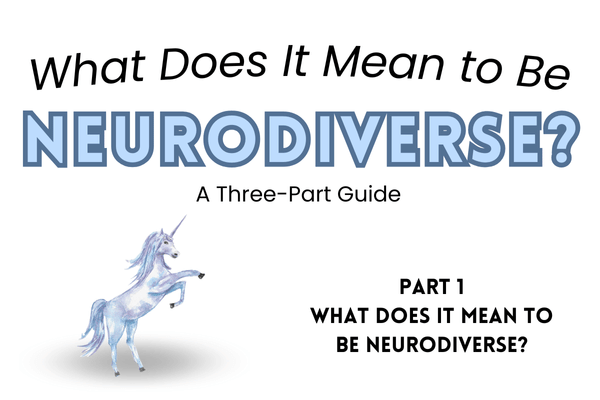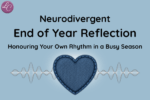What Does It Mean to Be Neurodiverse?
Ever wondered if you are neurodiverse? Let’s explore neurodiversity.
Have you ever felt like the world was moving at a different rhythm than you? Maybe bright lights feel too bright, noises seem too loud, or social interactions leave you utterly drained when others seem energised. Perhaps your mind moves faster than your mouth can keep up—or latches onto deep interests with an intensity others don’t seem to understand.
If any of this resonates, you might be neurodiverse.
What Does ‘Neurodiverse’ Mean?
The word neurodiverse describes the natural variations in how people think, feel, and experience the world. While society tends to prioritise certain ways of thinking—often called neurotypical—many people’s brains are wired differently. This includes those who are autistic, have ADHD, dyslexia, sensory processing differences, or other cognitive variations.
But neurodiversity isn’t only about diagnoses. If you’ve ever felt like the world was too loud, too fast, or too rigid for the way you function, you might relate to being neurodiverse. Many introverts, for example, process the world deeply and need extra downtime to recharge, which overlaps with some neurodivergent experiences. Whether you’ve always struggled with bright lights and noise, found social interactions draining, or needed unconventional ways to stay focused, your experience is valid.
Neurodiversity is a spectrum, and every person’s experience is unique. The key is recognising and embracing the way you function best.
Noticing the Signs
For some, the signs of being neurodiverse have always been obvious. Others may have spent years feeling off without quite knowing why.
Do any of these sound familiar?
✨ You notice patterns and details others miss.
✨ You feel drained by social interactions, even if you enjoy them.
✨ You have a rich inner world and love deep dives into your favourite topics.
✨ You experience sensory input more intensely—certain fabrics, sounds, or lights feel unbearable.
✨ You have bursts of creativity and energy but struggle with structure or routine.
If you recognise yourself in these experiences, you’re not alone. Many neurodiverse people go undiagnosed for years, especially if they’ve learned to mask their differences. But understanding why you experience the world differently can be incredibly freeing.
You Are Not Broken
Being neurodiverse doesn’t mean there’s something wrong with you—it means your brain is wired uniquely. The world may not always be designed with neurodiverse minds in mind, but that doesn’t mean your way of thinking is any less valid.
In the next post in this series, we’ll explore the incredible strengths of being neurodiverse—as well as some of the challenges that come with it. But for now, take a deep breath and know this: you are not alone, and your experiences make sense.







